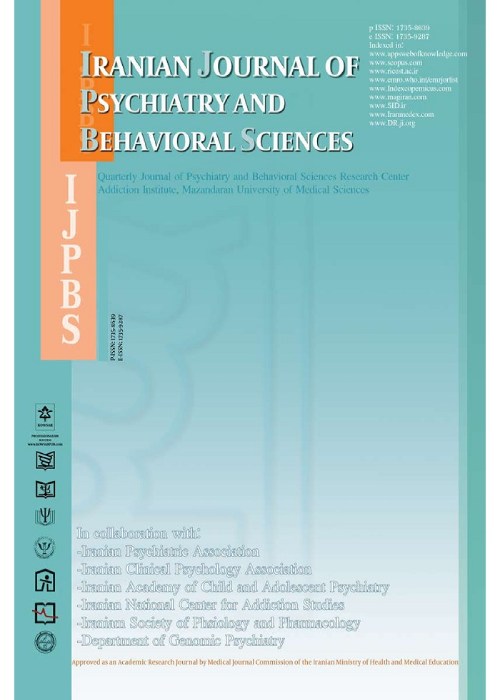Factors Influencing Object Relation Therapy Based on Transference and Potential Space: Analyzing the Experience and Understanding of Clients Suffering from Major Depressive Disorder
Author(s):
Abstract:
Background
Depression is a widespread disorder that affects all aspects of a persons life. Various psychological and medical interventions have been proposed to help treat depressive symptoms. One effective treatment is object relation therapy based on transference and potential space.Objectives
In the current study, we focus on how clients who suffer depressive disorder understand this type of therapy.Methods
This qualitative research was conducted in 2015 - 2016 using a content analysis with 18 Iranian participants who were diagnosed with depressive disorder based on the structured clinical interview for DSM-IV, the clinician version (SCID-I/C V) and who had received object relation therapy based on transference and potential space. The study was carried out in an outpatient clinic of the school of behavioral sciences and mental health (formerly Tehran Institute of psychiatry). The data were collected through conducting in-depth semi-structured interviews, which continued until data saturation was achieved. The data were analyzed with the induction method.Results
The analysis of the data resulted in the identification of 2 main categories and 4 subcategories. Gradual formation of therapeutic alliance and use of non-interpretative techniques were the subcategories of analytic dyad formation as the main category; and in-depth examination of client experience and clients emotional expression were listed under development of self-awareness and self-expression.Conclusions
Gradual formation of therapeutic alliance is consistent with literature that emphasizes the necessity of new relational experiences and creation of a safe attachment base in therapy. The findings showed that the exploration and awareness of patterns in the context of a secure relationship and transference and extra-transference can produce therapeutic changes. In addition, such safe space can provide a suitable context for releasing built-up emotions.Keywords:
Language:
English
Published:
Iranian Journal of Psychiatry and Behavioral Sciences, Volume:11 Issue: 2, Jun 2017
Page:
13
magiran.com/p1735648
دانلود و مطالعه متن این مقاله با یکی از روشهای زیر امکان پذیر است:
اشتراک شخصی
با عضویت و پرداخت آنلاین حق اشتراک یکساله به مبلغ 1,390,000ريال میتوانید 70 عنوان مطلب دانلود کنید!
اشتراک سازمانی
به کتابخانه دانشگاه یا محل کار خود پیشنهاد کنید تا اشتراک سازمانی این پایگاه را برای دسترسی نامحدود همه کاربران به متن مطالب تهیه نمایند!
توجه!
- حق عضویت دریافتی صرف حمایت از نشریات عضو و نگهداری، تکمیل و توسعه مگیران میشود.
- پرداخت حق اشتراک و دانلود مقالات اجازه بازنشر آن در سایر رسانههای چاپی و دیجیتال را به کاربر نمیدهد.
In order to view content subscription is required
Personal subscription
Subscribe magiran.com for 70 € euros via PayPal and download 70 articles during a year.
Organization subscription
Please contact us to subscribe your university or library for unlimited access!


